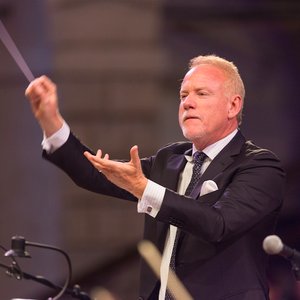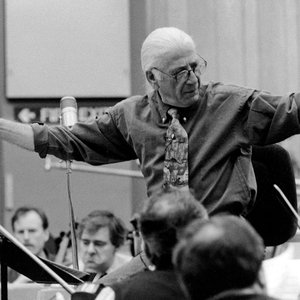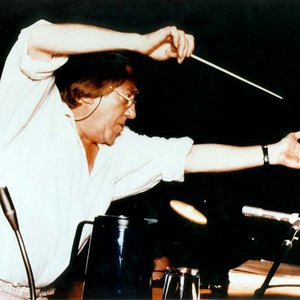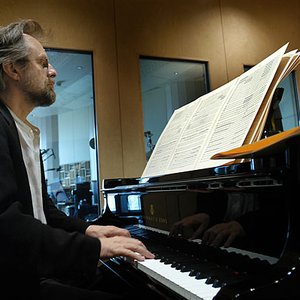Biography
Carl Davis, CBE born October 28, 1936 in New York City, United States, is an American-born conductor and composer who has made his home in the UK since 1961.
Carl is a conductor with the London Philharmonic Orchestra, and regularly conducts the Royal Liverpool Philharmonic Orchestra. He has written music for more than 100 television programs, but is best known for creating music to accompany silent films. Davis has assisted in the orchestration of the symphonic works of Paul McCartney.
The television years:
Davis achieved early prominence with the title music for the BBC anthology play series The Wednesday Play and later for Play for Today. Additional television scores include Up Pompeii! (1971), The Naked Civil Servant (1975), Man Friday (1975), The Kiss of Death (1977), Langrishe, Go Down (1978), Private Schulz (1980), Winston Churchill: The Wilderness Years (1981), The Far Pavilions (1984), The Day the Universe Changed (1985), Pride and Prejudice (1995), and Coming Home (1998).
He also worked for television producer Jeremy Isaacs in providing the theme music for the history documentary series The World at War (1973) for Thames Television and Cold War (1998).
Davis conducted the BBC's theme song for their coverage of the 2006 FIFA World Cup, adapted from George Handel's "See the Conquering Hero Comes".
Film music:
He has written a number of film scores including The French Lieutenant's Woman (1981), for which Davis won the BAFTA Award for Best Film Music.
Silent film music:
In 1980 Davis was commissioned by documentarians Kevin Brownlow and David Gill to create music for Thames Television's Hollywood: A Celebration of the American Silent Film. His association with them continued the same year with Abel Gance's epic silent film Napoléon (1927), which was restored and expanded with Davis' music for cinematic release. In March 2012, Davis conducted the Oakland East Bay Symphony performing his score for the complete Brownlow restoration in a presentation by the San Francisco Silent Film Festival at the Paramount Theatre Oakland. There was a similar treatment for D. W. Griffith's Intolerance: Love's Struggle Through The Ages (1916). This had orchestral music originally, but Davis's new score was used instead in 1989.
The Hollywood documentary series was followed by the documentaries Unknown Chaplin in 1982, Buster Keaton: A Hard Act to Follow (cf Buster Keaton) in 1987 and Harold Lloyd: The Third Genius (cf Harold Lloyd) in 1989. In the 1980s and 1990s, Davis wrote and conducted the scores for numerous classic silent films released restored and released through Brownlow and Gill's Thames Silents series in the UK.
By 1993, his reputation made him the number one choice for new scores to silent films. Many DVD releases, including Ben-Hur (1925), The Phantom of the Opera (1925), Safety Last (1923), DeMille's The Godless Girl (1928), Chaplin's City Lights (1931) (re-orchestrated by Davis based on Chaplin's and Padilla's original written score) and Erich von Stroheim's Greed (1924), use Davis's music. Davis also created an entire re-scoring of Clarence Brown's Flesh and the Devil (1927). In many of these recordings, he is the conductor as well the composer. On several occasions he has performed these works live in the cinema, as well as in concert halls as the film is running.
Artist descriptions on Last.fm are editable by everyone. Feel free to contribute!
All user-contributed text on this page is available under the Creative Commons Attribution-ShareAlike License; additional terms may apply.












